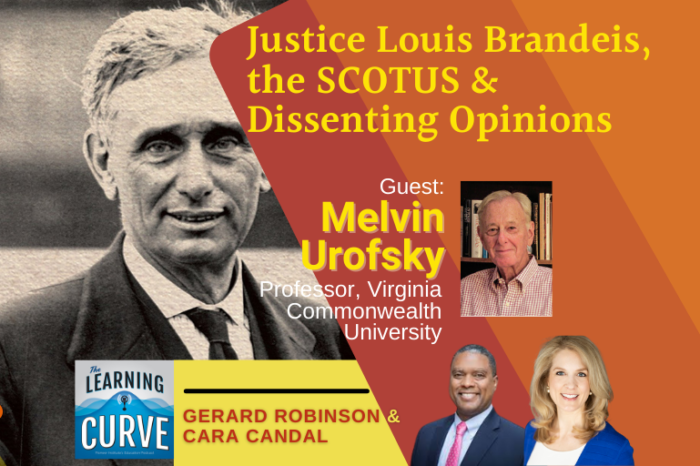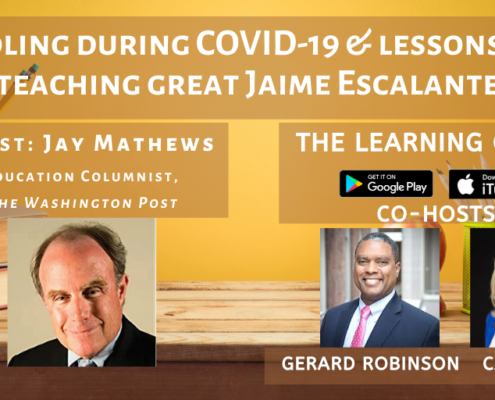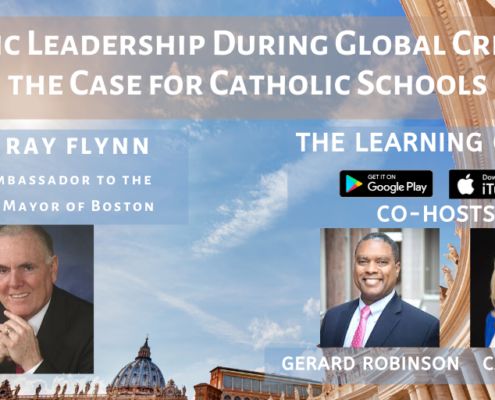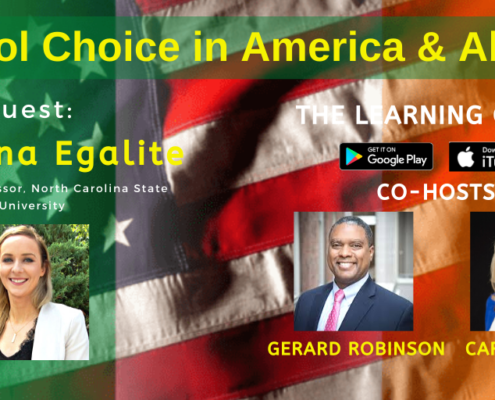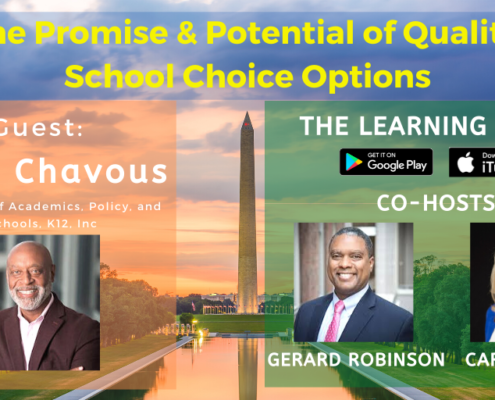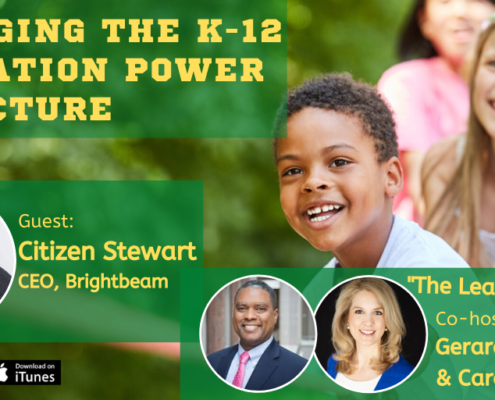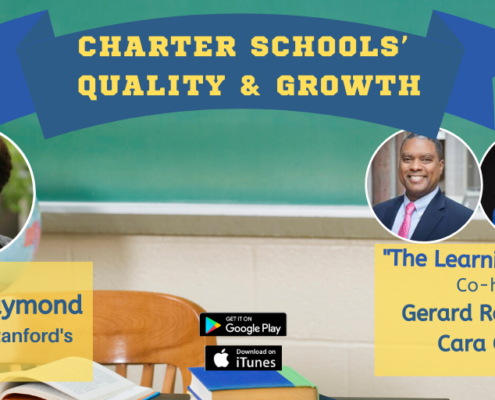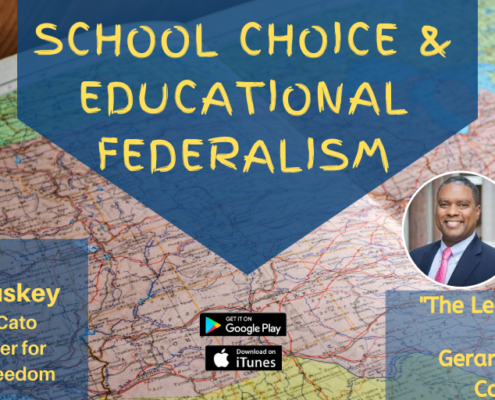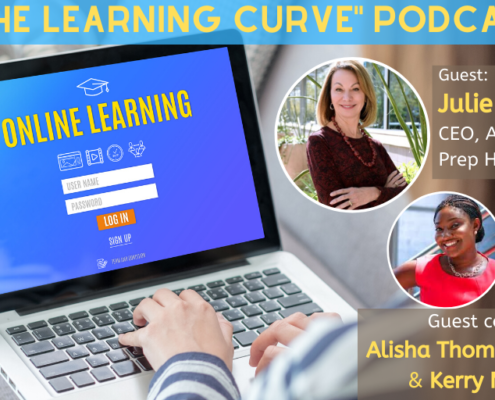Law Prof. Melvin Urofsky on Justice Louis Brandeis, the SCOTUS, & Dissenting Opinions
This week on “The Learning Curve,” Gerard and Cara talk with Melvin Urofsky, Professor of Law & Public Policy and Professor Emeritus of History at Virginia Commonwealth University, and the author of several books, including Louis D. Brandeis: A Life and Dissent and the Supreme Court. Professor Urofsky shares insights on Justice Brandeis’s jurisprudence, and why he consistently ranks among the three most influential Supreme Court justices in American history. They discuss his understanding of American constitutionalism, and how he interpreted the law to diminish consolidated financial and federal power, what he called the “curse of bigness” – big banks and business monopolies, as well as big government. They also explore Brandeis’s dissenting opinion in the U.S. Supreme Court case New State Ice Co. v. Liebmann, perhaps the best-known 20th-century articulation of the role of the states as “laboratories of democracy” under our federal constitutional system. They delve into some of the most influential dissenting opinions in U.S. Supreme Court history. For example, Justice John Marshall Harlan, the lone dissenter in the Court’s infamous 1896 Plessy v. Ferguson case, offered legal views that would later lead to the landmark 1954 Brown v. Board of Education decision overturning “separate but equal.” Professor Urofsky also offers thoughts from his 2020 book, The Affirmative Action Puzzle: A Living History from Reconstruction to Today, on one of the thorniest political and legal topics of our era. He concludes the interview with a reading from Justice Brandeis’s concurring opinion in defense of free speech in Whitney v. California.
Stories of the Week: Cara and Gerard discuss National Charter Schools Week, and this education sector’s success in improving opportunity for underserved students. In Florida, nearly 95 percent of seniors enrolled in the state’s Tax Credit Scholarship program graduated from high school during the 2019-20 school year, the second highest graduation rate since they began tracking it in 2015. A new study of admissions at 99 colleges shows that despite adopting test-optional policies to increase diversity, the share of low-income students or students of color at these colleges has risen by only a percentage point.
Guest
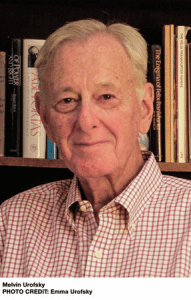 Melvin Urofsky is Professor of History Emeritus at Virginia Commonwealth University. He is the author or editor of more than 50 books and many articles. Among his works are the prize-winning Louis D. Brandeis: A Life (2009), Dissent and the Supreme Court (2015), and most recently The Affirmative Action Puzzle (2020). He is also the long-time editor of the Journal of Supreme Court History. He, his wife Susan, and their dog Simba live in Gaithersburg, Maryland.
Melvin Urofsky is Professor of History Emeritus at Virginia Commonwealth University. He is the author or editor of more than 50 books and many articles. Among his works are the prize-winning Louis D. Brandeis: A Life (2009), Dissent and the Supreme Court (2015), and most recently The Affirmative Action Puzzle (2020). He is also the long-time editor of the Journal of Supreme Court History. He, his wife Susan, and their dog Simba live in Gaithersburg, Maryland.
The next episode will air on Wednesday, May 19th, 2021 at 12 pm ET with guest, Rafe Esquith, a retired, award-winning teacher at Hobart Elementary School in Los Angeles, and the founder of The Hobart Shakespeareans, who annually stage performances of unabridged plays by William Shakespeare.
Tweet of the Week:
Dear media: Stop reporting average tuition at "independent" schools as all private schools. It massively inflates average private tuition, which is about $11,200 https://t.co/Ehd7X183qt
Learn more https://t.co/qyB6WZOP8t @alexanderrusso @jdickler @CatoPress @DeAngelisCorey— Neal McCluskey (@NealMcCluskey) May 10, 2021
News Links:
FLORIDA TAX CREDIT SCHOLARSHIP PROGRAM RECORDS 94.5% GRADUATION RATE FOR 2019-20
PROOF POINTS: Test-optional policies didn’t do much to diversify college student populations
https://hechingerreport.org/proof-points-test-optional-policies-didnt-do-much-to-diversify-college-student-populations/?utm_source=feedburner&utm_medium=feed&utm_campaign=Feed%3A+HechingerReport+%28Hechinger+Report%29

